The new 13-inch M1 MacBook Air and MacBook Pro, launched on November 10, are now arriving to owners, and the tech world is impressed with their performance and especially battery life. Matthew Panzarino of TechCrunch compared the 16-inch Intel-based MacBook models with both M1 MacBook Air and MacBook Pro and found that performed better with minimal battery drain.
Although Apple has disappointed some with retaining the same design in the new MacBook models, it has given superior hardware and software upgrades to evolve the Mac experience, completely. The faster and more power-efficient 5nm process M1 chip paired with macOS Big Sur make the new Apple Silicon Macs offer enhanced performance, technology, and battery life like never before. Here are Panzarino’s discoveries in detail.
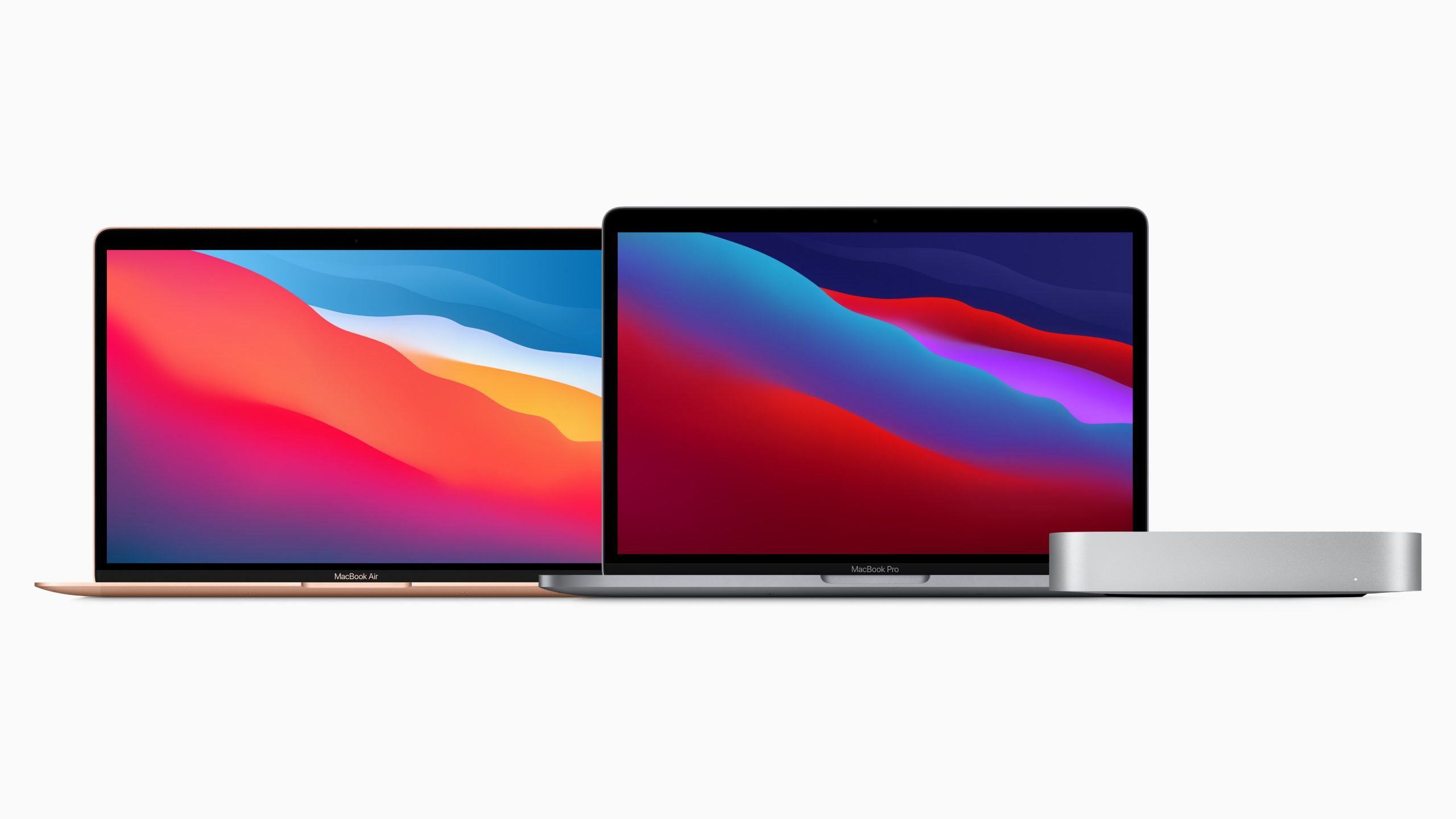
M1 Macs vs. Intel-based Macs
Compiling open-source code for Safari browser engine Webkit on M1 and Intel Core Mac models, Panzarino found that Apple Silicon Macs completed the task quicker.
Performance
- 13-inch M1 MacBook Pro – 20 minutes and 43 seconds
- 13-inch MacBook Pro – 46 minutes 10 seconds
- 16-inch MacBook Pro – 26 minutes 56 seconds
- M1 Mac mini – 19 minutes and 32 seconds
- M1 MacBook Air – 25 minutes 5 seconds
- Mac Pro – 20 minutes 11 seconds
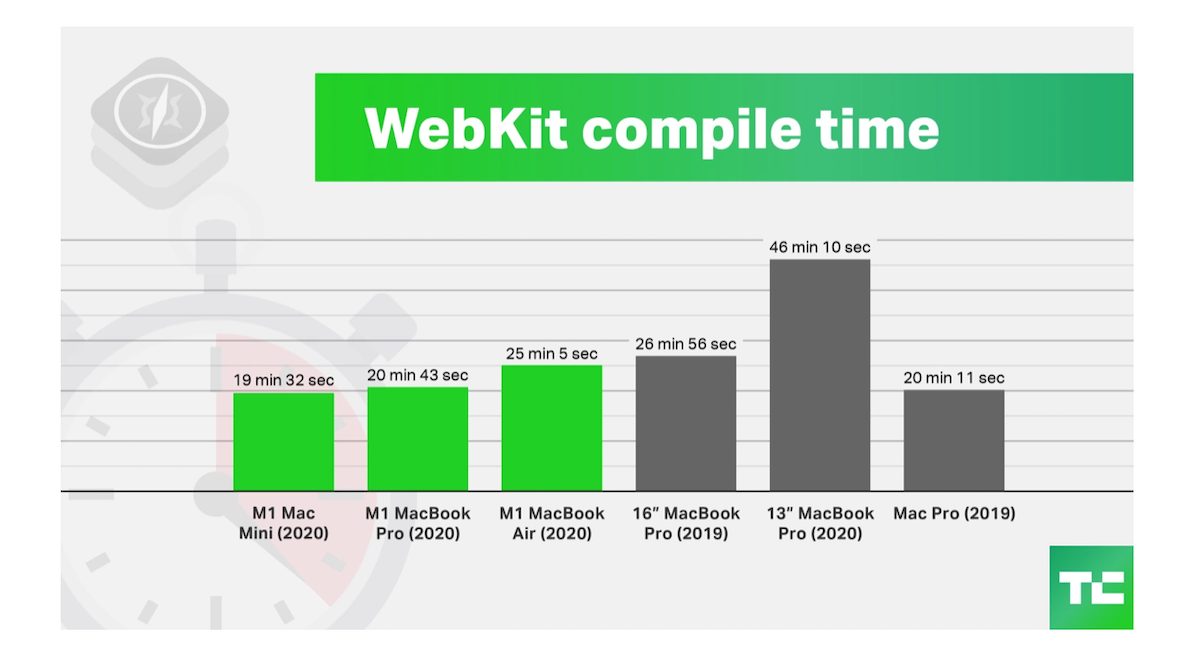
Battery Life
The test got very impressive when the battery drain of different Mac models, on two different processors, completing the same task was compared.
- M1 MacBook Air – 91%
- M1 MacBook Pro – 91%
- 13-inch MacBook Pro – 24%
- 16-inch MacBook Pro – 61%
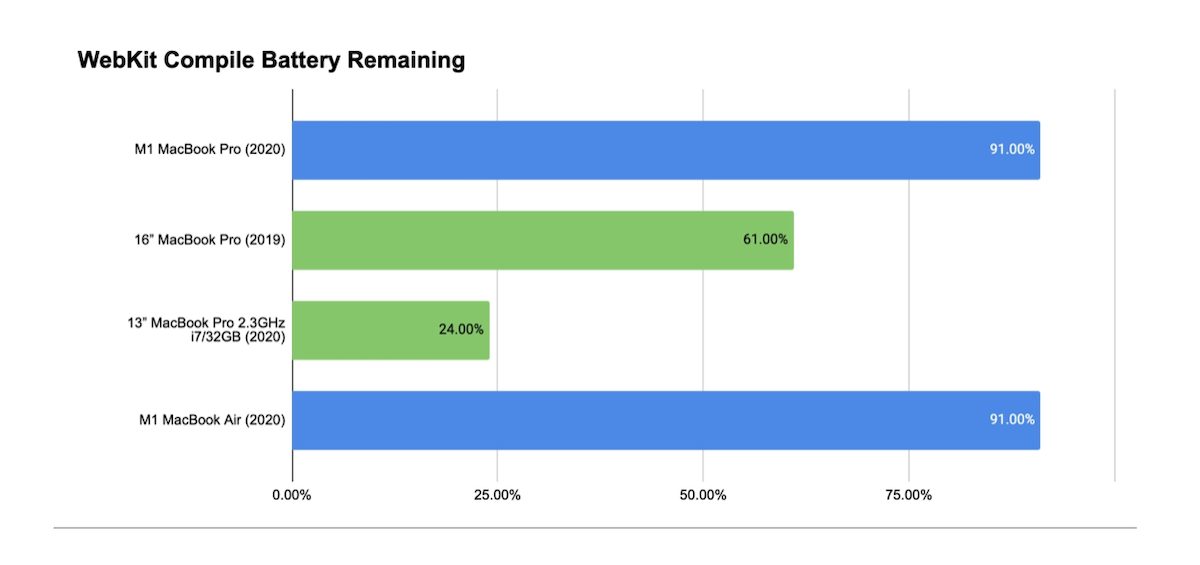
Panzarino writes that “Apple’s M1 MacBook Pro is powerful but it’s the battery life that will blow you away.” His conclusion resonates with a lot of other tech reviewers who are praising the major improvement in battery life on the new M1 MacBook models to get more done on a single charge.
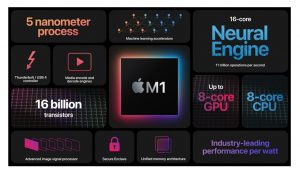
Apple Silicon M1 has revolutionized the battery performance of laptops. This single-chip combines CPU, GPU, and Neural Engine, and offers a unified memory architecture which has dramatically improve performance, response rate, and power efficiency. He concluded that the M1 is the future of CPU design and M1 MacBook performance has made Intel’s chips obsolete overnight. He wrote,
“Apple has spent the last decade “fixing” its battery problem by continuing to carve out massive performance gains via its A-series chips all while maintaining essentially the same (or slightly better) battery life across the iPhone lineup. No miracle battery technolog has appeared, so Apple went in the opposite direction, grinding away at the chip end of the stick.
What we’re seeing today is the result of Apple flipping the switch to bring all of that power efficiency to the Mac, a device with 5x the raw battery to work with. And those results are spectacular.”
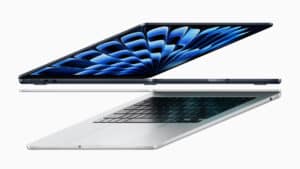

3 comments